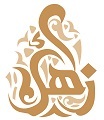The Jama'ah – Community of the Ummah or Aristocratic Nepotism?
How the Absence of Shura and Elections Divides the Believers
A Critical Analysis of the Islamic Community and the Necessity of Shura
In a time of increasing political, social, and religious divisions within the Islamic world, the crucial question arises: Is the Ummah still a unified community, or has it transformed into a structure characterized by nepotism, concentration of power, and a lack of participation? The book "The Jama'ah – Community of the Ummah or Aristocratic Nepotism?" explores this question and sheds light on how the absence of Shura and elections divides and weakens the Muslim community.
Insights into the Content
In this work, the author analyzes the historical, theological, and social developments that have led to the current crisis in the Ummah. He focuses in particular on the role of the shura – a central principle of Islamic leadership and community organization that has been increasingly neglected throughout history.
The book addresses the following key themes:
- The definition of the Ummah: What does the Islamic community mean according to the teachings of the Quran and the Sunnah? How does it differ from other social or political groups?
- The principle of Shura: Why is consultation an Islamic duty? What examples are there from the time of the Prophet Muhammad and the rightly guided caliphs?
- The consequences of neglecting Shura: What were the consequences of abandoning consultative leadership in Islamic history? How did dynastic succession systems, such as those of the Umayyads and Abbasids, lead to a concentration of power in the hands of a few?
- Nepotism and elitist power structures: How did an aristocratic form of leadership become established in the Islamic world? What mechanisms ensure that power often remains in the hands of a few?
- Lessons from Islamic history: What can we learn from past conflicts, for example, the arbitration decision after the Battle of Siffin or the assassination of Ali?
- Modern examples of the lack of shura: How does this problem manifest itself today in Islamic organizations, movements, and states? What role does the cult of leadership play in certain groups?
- A return to Islamic principles: What reforms are necessary to restore unity and justice within the Ummah?
The Islamic Ummah is experiencing a profound identity crisis. While Islam calls for a community based on brotherhood, justice, and collective deliberation, reality often presents a different picture: power is inherited or monopolized, criticism is suppressed, and the interests of individuals dominate the well-being of the community. This book addresses this problem and calls for a return to the original values of Islam.
Jama'ah – Community of the Ummah or Aristocratic Nepotism? is a wake-up call to all Muslims to become aware of their responsibility. It offers a sound analysis while also highlighting clear courses of action for reviving the principles of shura and justice.
Who is this book suitable for?
For anyone interested in the Islamic community and its current challenges
For Muslims interested in fairer and more transparent leadership
For theologians, historians, and those interested in Islamic politics and governance
For members of Islamic organizations and movements who wish to reflect on their structures
This book is an in-depth examination of how the abandonment of shura has weakened the Ummah—and at the same time, a plea for a return to the principles of justice, brotherhood, and collective leadership.
- Author: Erden Karsli
- Number of pages: 278
- Format: 21 x 13 cm
- 1st edition







